Charting a New Course for First Generation Students
by Emme Demmendaal
Each year, first-generation college students from rural Maine are mapping a new course with assistance from the University of New England and the Davis Maine Scholarship.
Opening a letter seemed like a small thing to Mali Smith back in the spring of 2021.
At the time, she was walking to her high school locker with a friend, letter in hand. Smith was graduating from Narraguagus High School next year, and she had been waiting on news that had the potential to change her plans.
Anticipation mounted as she ripped open the envelope and pulled out its contents. Inside was a note from the Maine Seacoast Mission about a new initiative, the Davis Maine Scholarship program, which offers students from Downeast Maine a full-ride scholarship for tuition and living expenses at three participating universities. The letter informed Smith that she had been accepted into the program’s inaugural cohort.
It was that piece of paper that ended up changing her life trajectory, Smith said.
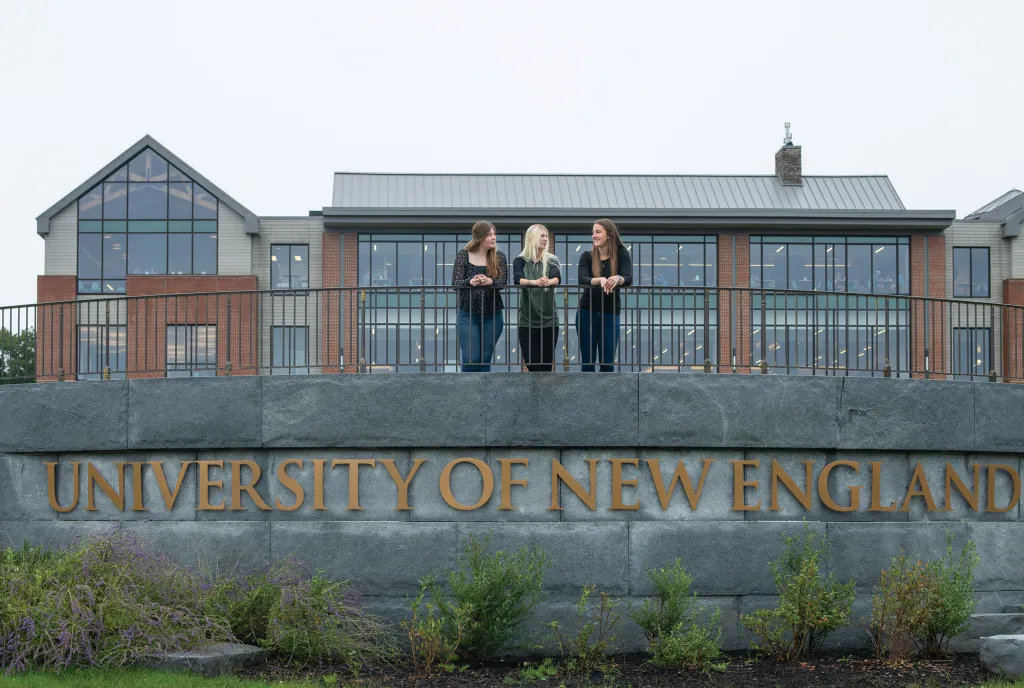
She hadn’t yet decided what she would do after high school graduation. She grew up in the Washington County community of Columbia Falls — population 500. She said the cost of attending school kept her from deciding whether to go to college or work for her family’s carpentry business in town.
“I knew I needed support to make it happen,” Smith said. Like many rural Maine high school graduates, her family didn’t have the means to send her to school.
The letter from the Davis Maine Scholarship program opened the door to college for Smith.
“The scholarship pushed me over the edge to definitively say I was going to go to college at the University of New England,” she said.
The Davis Maine Scholarship provides up to six first-generation college students in rural Washington and eastern Hancock Counties with the financial support needed to pursue and complete bachelor’s degrees from a prestigious, private liberal arts college in New England.
In the scholarship’s inaugural cohort, four of the six students selected the University of New England (UNE) to pursue higher education.
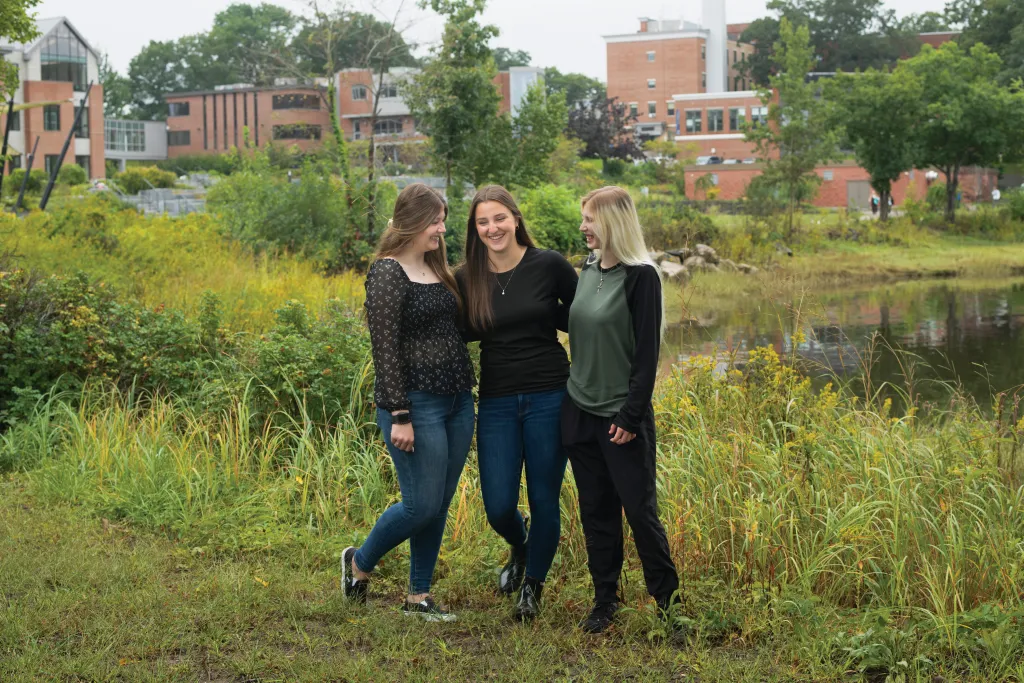
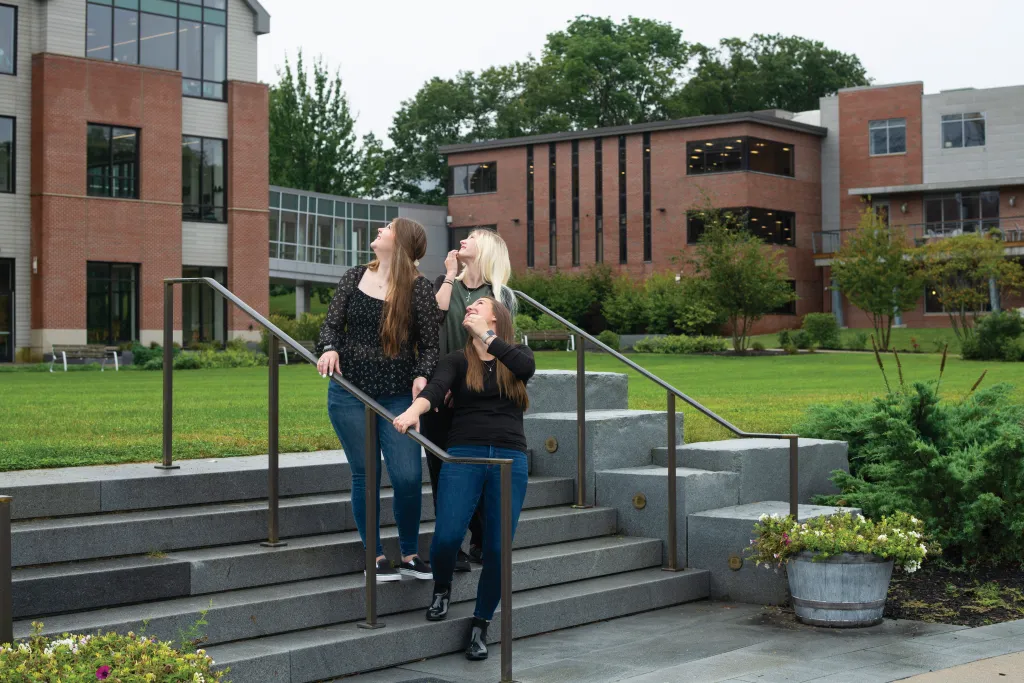
UNE stands as the sole Maine institution collaborating on this distinctive initiative for its track record of effectively serving first-generation, low-income rural students through existing programs.
“Education is something that can change your life, but it can change the life of your family as well,” said John Zavodny, Ph.D., president of the Maine Seacoast Mission. Working closely with partner high schools and UNE, the program provides students with guidance as they apply to college and transition through it, and it also includes a parent workshop and support.
“When we selected our partner colleges, we were looking for institutions who saw real value in the students that we work with and who also had a credible track record and programs in place to support those first-generation, college-going students,” Zavodny said.
Andrew Davis created the scholarship because of his experience at a college in Maine, where he recognized the transformative value of a four-year liberal arts education away from home, he said. The scholarship, named after his family and the Shelby Cullom Davis Charitable Fund, aims to provide students with a similar experience and continue the legacy of philanthropy in education initiated by his predecessors.
Serving first-generation college students is a tradition that dates to UNE’s origins, said Shane Long, M.S., assistant dean of students. Long, along with many University leaders, including the president, provost, dean of students, and other key members of the faculty and professional staff, are first-generation college students.
“A large part of UNE’s history has been serving underserved students all the way back to St. Francis College,” said Long, referring to one of UNE’s precursor institutions. St. Francis College was founded, in the place where the UNE Biddeford Campus is today, with the goal of educating young residents who may not normally have attended college, he said.
“UNE is and has always been a place for students who might not have an opportunity to be at an academically rigorous residential campus with connections to graduate school and the opportunity to participate in research,” Long said.
Each year, over 30% of UNE’s admitted undergraduate students are first-generation students. With this in mind, the University has actively tailored programs to address their unique challenges, Long said, and the Davis Maine Scholars are great examples of the UNE first-generation students’ journey.
Katie Bernier, MBA, assistant director of undergraduate admissions, provides Davis Maine Scholars with support through the college selection process and serves as an administrative contact once scholars matriculate to UNE.
“A whole team is available to help (the Davis Maine scholars) find success, from student academic support, faculty assistance, mentoring, and the community the students have on campus,” Bernier said.
Finding a Community
Emilee Hutchins, from Winter Harbor, credits the program for easing the financial hardship of college and the University for providing support while adjusting to college life. She said it helped her develop connections, pushed her to succeed academically, and gave her tools to thrive beyond school.
“It’s really freeing to have this scholarship,” said Hutchins, who is a sophomore elementary-middle education major in the College of Arts and Sciences, adding that she wants to open her own daycare or preschool in her hometown or a nearby town. The scholarship and education at UNE have put her further ahead than she thought possible, she said.
“It’s more than I ever thought I could get to achieve my goals,” she said. “UNE has an amazing (education) program and the people at UNE have really helped me adjust to college life and made sure I was succeeding.”
Hutchins highlighted that the people within the School of Education, from the professional staff to her professors, were there to help her as she navigated the college system for the first time. “From understanding what resources are available to me to balancing my coursework, each person in the department helped me in their own way,” she said.
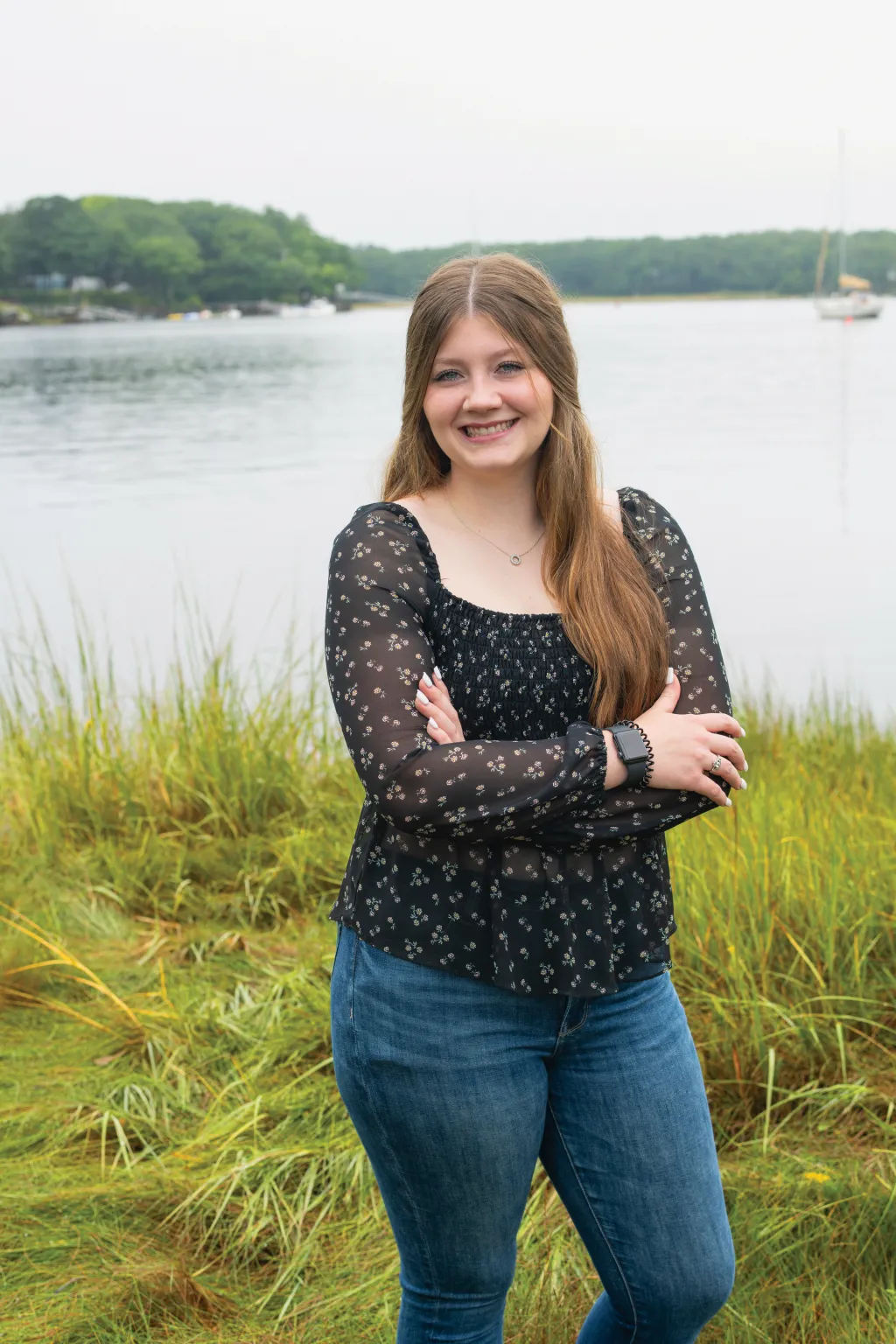
In addition to her first-year classes, Hutchins participated in the Education Club, one of more than 100 clubs and organizations UNE students have created to enhance their college experience.
“I was three-and-a-half hours away from home,” she said, noting that the relationships and community she built with the club, along with her Davis Maine cohort, helped her ease into college life in her first year. “Along the way, I met people — I tried to get out there, and having a home away from home really helped since I didn’t have my family.
Finding New Pathways
Rachel Colby from Gouldsboro came to the University not sure exactly what she wanted to do besides work in health care.
“I’ve always liked helping people,” said Colby, who grew up lobstering with her father and younger sister. “And to some people, it sounds kind of crazy because, my whole life, I’ve just been self-employed doing my own thing on the water.”
For her, the Davis Maine Scholarship opened doors to college, she said, that would have stayed closed otherwise. When Colby arrived at UNE, her advisors and professors helped guide her toward discovering a career path that fit her interests.
“I’ve talked to multiple advisors, admissions counselors, and even professors, and everyone’s there to help you and make sure you have the best experience you can,” Colby said. “They really helped me narrow down what type of things I like to do.
The other recipients and I are beyond grateful for the opportunities the Davis Maine Scholarship has provided for us….Being away from home and knowing that you’re not alone — that you’re supported — makes it so much easier.” — Rachel Colby
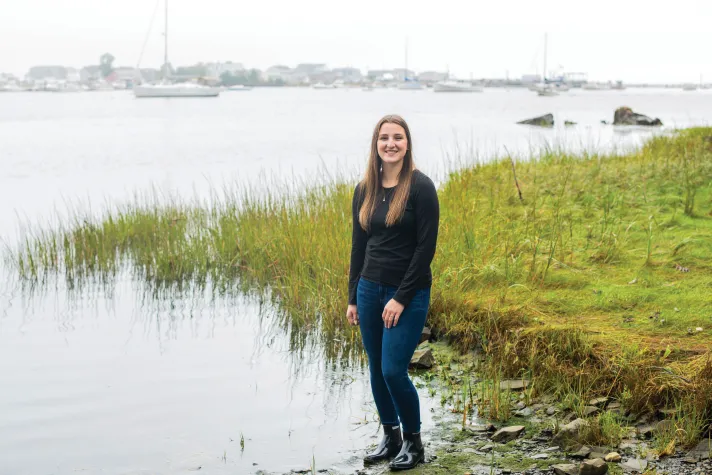
“Being away from home and knowing that you’re not alone — that you’re supported — makes it so much easier,” she added.
While Colby started out as a pre-med student, she quickly discovered the other health care professions have more condensed classroom time and greater opportunities to return home earlier to her community.
“In nursing, there’s so many opportunities,” she said. “With becoming a nurse, I find comfort in the countless job opportunities it provides, such as hospital settings, outpatient settings, and being able to work with patients of all ages.”
Amidst discovering a career path that will take her home to serve Downeast Maine, Colby was tasked with learning how to study — a challenge many first-generation college students face. UNE’s Student Academic Success Center is designed to assist students in developing a learning and study plan based on their individual needs and workload to assess progress and effectiveness.
“I had no idea how to study because I never had to do it before,” Colby said. “I think I’m starting to get the hang of it now, and it helped me learn strong study habits and the best ways to prepare for exams.
“The Davis Maine Scholarship is here to support all their students to see them succeed and flourish in college,” Colby said. “The other recipients and I are beyond grateful for the opportunities the Davis Maine Scholarship has provided for us.”
Finding Opportunity
Mali Smith, an animal behavior major in the School of Social and Behavioral Sciences, said she was severely homesick after arriving on UNE’s campus her freshman year.
She attended different First Generation Bridge program events that helped students transition more smoothly to college life. At one event, she and a group of students met with faculty and staff who were once first-generation students themselves.
Here, she reconnected with UNE’s Katie Bernier, who later became a staff mentor for Smith. The Bridge program, while optional, is only a small part of helping Davis Maine Scholarship recipients succeed at school. Since the program’s inception, 48 faculty, professional staff, and University leaders who are first-generation college graduates have participated as mentors.
“Katie was a really big help for me because I didn’t have a lot of people to talk to at the time,” Smith said. “It was just a really, really big help to have somebody supporting me and able to guide me in the way that I was able to flourish.”
At UNE, Smith discovered a wider array of career opportunities to work with animals than she thought possible.
“At first, I wanted to be a veterinarian,” she said, “but discovered I could do wildlife rehabilitation or be a game warden — something I didn’t know was possible before.”
Determined as she was to pave a new path for herself, Smith said she sometimes felt like an imposter at school.
“I was really nervous being away from home,” she admitted. “Sometimes I asked myself, ‘Do I really belong here?’ But in the end, I knew that I did.
“To say that the Davis Maine program changed my life is an understatement,” Smith added. Her younger sibling will be attending college in a few years, and she plans to help them transition to college life. “It isn’t just a scholarship. It was an entire path change, not just for me but for my sister, too.”
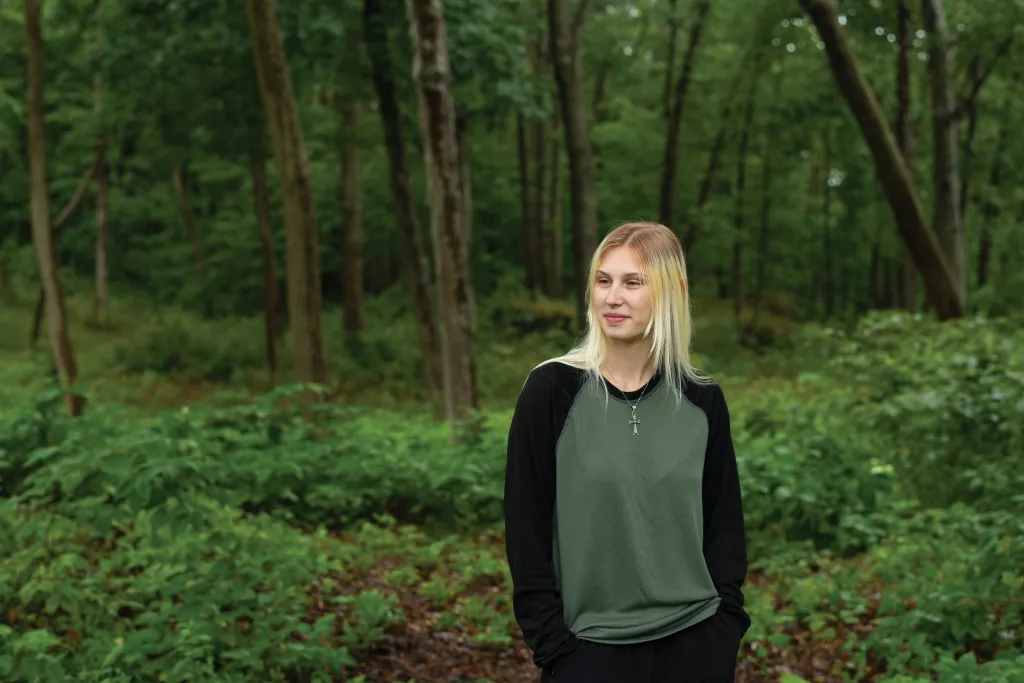
In addition to helping break open a pathway to college for her sister, Smith plans to help the next cohort of Davis Maine Scholars who are first-year students this fall.
“The first group of scholars are the overseers,” she said. “And we’ll watch over the others to see how they grow into their own person and look out for them if they have any trouble — We will be somebody they can also lean on.”
The vision of Maine Seacoast Mission’s Davis Maine Scholarship, in partnership with UNE, aims to impact Downeast Maine communities through the education of the next generation of leaders and changemakers. UNE is forging a path toward a healthier planet through the impactful endeavors of these scholars, Long said.
“As we guide our students in shaping their futures, our aspiration is for them to continue to foster their talents, not only for personal enrichment, but also for the betterment of the people and institutions they will eventually lead and the communities they are bound to serve,” he said. “With unwavering certainty, we anticipate that the investment in their education will generate substantial return that will resonate across generations.”
